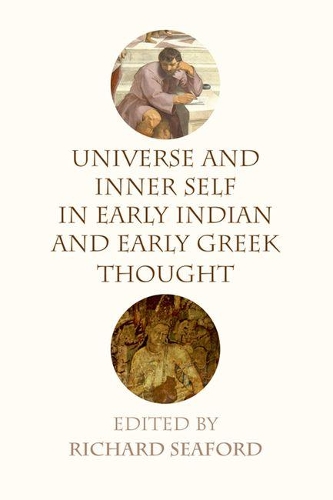
Universe and Inner Self in Early Indian and Early Greek Thought
(Paperback)
Publishing Details
Universe and Inner Self in Early Indian and Early Greek Thought
By (Author) Richard Seaford
Edinburgh University Press
Edinburgh University Press
8th November 2017
United Kingdom
Classifications
Professional and Scholarly
Non Fiction
Ancient history
Ancient Greek and Roman philosophy
East Asian and Indian philosophy
Physical Properties
Paperback
320
Width 156mm, Height 234mm
Description
From the sixth century BCE onwards there occurred a revolution in thought, with novel ideas such as such as that understanding the inner self is both vital for human well-being and central to understanding the universe. This intellectual transformation is sometimes called the beginning of philosophy. And it occurred independently it seems - in both India and Greece, but not in the vast Persian Empire that divided them. How was this possible This is a puzzle that has never been solved.
This volume brings together Hellenists and Indologists representing a variety of perspectives on the similarities and differences between the two cultures, and on how to explain them. It offers a collaborative contribution to the burgeoning interest in the Axial Age and will be of interest to anyone intrigued by the big questions inspired by the ancient world.
Reviews
The philosophical traditions of Greece and India are divergent but also show striking convergences. This book is an important and valuable contribution to the comparative study of the two ancient cultures. The various chapters are learned and sophisticated and considerably enrich our understanding of Greek and Indian philosophy. * Phiroze Vasunia, University College London *
Author Bio
Richard Seaford is Emeritus Professor of Ancient Greek at the Univerity of Exeter. He has been a Fellow of the National Humanities Center in North Carolina, Distinguished Visiting Professor at the University of Texas at Austin, and President of the Classical Association (UK). He is the author of numerous articles and books ranging from Homer to the New Testament.
